afterLoad (456.44KB) (7.18ms)
afterInitialise (1.27MB) (63.91ms)
afterRoute (870.38KB) (25.1ms)
beforeRenderComponent com_tags (20.38KB) (335μs)
afterRenderComponent com_tags (2.28MB) (295ms)
afterDispatch (27.08KB) (4.56ms)
beforeRenderRawModule mod_articles_category (READ MORE...) (372.12KB) (13.94ms)
Before Access::preloadComponents (all components) (56.7KB) (1.75ms)
After Access::preloadComponents (all components) (103.05KB) (2.14ms)
Before Access::getAssetRules (id:8 name:com_content) (840B) (31μs)
After Access::getAssetRules (id:8 name:com_content) (7.05KB) (59μs)
afterRenderRawModule mod_articles_category (READ MORE...) (5.08KB) (173ms)
beforeRenderRawModule mod_tags_popular (Search) (4.81KB) (46μs)
afterRenderRawModule mod_tags_popular (Search) (7.04KB) (116ms)
beforeRenderRawModule mod_custom (Remember to download Heart Healthy Seniors) (816B) (38μs)
afterRenderRawModule mod_custom (Remember to download Heart Healthy Seniors) (4.86KB) (307μs)
beforeRenderRawModule mod_custom (Get additionel and more detailed knowledge ) (752B) (14μs)
afterRenderRawModule mod_custom (Get additionel and more detailed knowledge ) (1.67KB) (28μs)
beforeRenderRawModule mod_custom (BOOST YOUR IMMUNE DEFENSE) (608B) (10μs)
afterRenderRawModule mod_custom (BOOST YOUR IMMUNE DEFENSE) (928B) (24μs)
beforeRenderRawModule mod_custom (Are you taking supplements) (736B) (10μs)
afterRenderRawModule mod_custom (Are you taking supplements) (1.03KB) (19μs)
beforeRenderRawModule mod_custom (Antiaging) (720B) (9μs)
afterRenderRawModule mod_custom (Antiaging) (1.02KB) (19μs)
beforeRenderRawModule mod_custom (Exercise) (720B) (9μs)
afterRenderRawModule mod_custom (Exercise) (1.02KB) (5.07ms)
beforeRenderRawModule mod_custom (Check this before you buy a Q10 product) (752B) (41μs)
afterRenderRawModule mod_custom (Check this before you buy a Q10 product) (944B) (42μs)
beforeRenderRawModule mod_custom (Chronic fatigue tied Alan to his bed but Q10 capsules saved him:) (245.53KB) (8.57ms)
afterRenderRawModule mod_custom (Chronic fatigue tied Alan to his bed but Q10 capsules saved him:) (960B) (55μs)
beforeRenderModule mod_custom (Chronic fatigue tied Alan to his bed but Q10 capsules saved him:) (768B) (5μs)
afterRenderModule mod_custom (Chronic fatigue tied Alan to his bed but Q10 capsules saved him:) (1.3KB) (71μs)
beforeRenderRawModule mod_custom (Cholesterol-lowering without side effects:) (368B) (14μs)
afterRenderRawModule mod_custom (Cholesterol-lowering without side effects:) (2.19KB) (25μs)
beforeRenderModule mod_custom (Cholesterol-lowering without side effects:) (752B) (2μs)
afterRenderModule mod_custom (Cholesterol-lowering without side effects:) (1.28KB) (31μs)
beforeRenderModule mod_articles_category (READ MORE...) (21.32KB) (4.51ms)
afterRenderModule mod_articles_category (READ MORE...) (1.25KB) (66μs)
beforeRenderModule mod_tags_popular (Search) (5.17KB) (15μs)
afterRenderModule mod_tags_popular (Search) (1.27KB) (26μs)
beforeRenderModule mod_custom (Remember to download Heart Healthy Seniors) (1.17KB) (12μs)
afterRenderModule mod_custom (Remember to download Heart Healthy Seniors) (1.3KB) (22μs)
beforeRenderModule mod_custom (Get additionel and more detailed knowledge ) (368B) (10μs)
afterRenderModule mod_custom (Get additionel and more detailed knowledge ) (1.3KB) (22μs)
beforeRenderModule mod_custom (BOOST YOUR IMMUNE DEFENSE) (224B) (9μs)
afterRenderModule mod_custom (BOOST YOUR IMMUNE DEFENSE) (1.28KB) (22μs)
beforeRenderModule mod_custom (Are you taking supplements) (352B) (9μs)
afterRenderModule mod_custom (Are you taking supplements) (1.28KB) (21μs)
beforeRenderModule mod_custom (Antiaging) (336B) (9μs)
afterRenderModule mod_custom (Antiaging) (1.27KB) (21μs)
beforeRenderModule mod_custom (Exercise) (336B) (9μs)
afterRenderModule mod_custom (Exercise) (1.25KB) (21μs)
beforeRenderModule mod_custom (Check this before you buy a Q10 product) (352B) (8μs)
afterRenderModule mod_custom (Check this before you buy a Q10 product) (1.28KB) (21μs)
beforeRenderRawModule mod_menu (Main menu-US) (20.94KB) (3.66ms)
afterRenderRawModule mod_menu (Main menu-US) (152.66KB) (5.33ms)
beforeRenderModule mod_menu (Main menu-US) (720B) (7μs)
afterRenderModule mod_menu (Main menu-US) (4.36KB) (71μs)
beforeRenderRawModule mod_languages (Sprogskift) (3.44KB) (19μs)
afterRenderRawModule mod_languages (Sprogskift) (26.88KB) (7.25ms)
beforeRenderModule mod_languages (Sprogskift) (720B) (5μs)
afterRenderModule mod_languages (Sprogskift) (5.31KB) (23μs)
beforeRenderRawModule mod_finder () (6.34KB) (12μs)
afterRenderRawModule mod_finder () (214.16KB) (9.82ms)
beforeRenderModule mod_finder () (704B) (7μs)
afterRenderModule mod_finder () (5.79KB) (63μs)
beforeRenderRawModule mod_custom () (6.62KB) (190μs)
afterRenderRawModule mod_custom () (22.64KB) (3.78ms)
beforeRenderModule mod_custom () (704B) (8μs)
afterRenderModule mod_custom () (1.23KB) (83μs)
beforeRenderRawModule mod_menu (Main menu-US) (5.07KB) (126μs)
afterRenderRawModule mod_menu (Main menu-US) (5.8KB) (692μs)
beforeRenderModule mod_menu (Main menu-US) (720B) (3μs)
afterRenderModule mod_menu (Main menu-US) (1.25KB) (46μs)
beforeRenderRawModule mod_languages (Sprogskift Mobil) (912B) (17μs)
afterRenderRawModule mod_languages (Sprogskift Mobil) (3.89KB) (2.76ms)
beforeRenderModule mod_languages (Sprogskift Mobil) (720B) (8μs)
afterRenderModule mod_languages (Sprogskift Mobil) (1.27KB) (40μs)
beforeRenderRawModule mod_finder () (2.3KB) (14μs)
afterRenderRawModule mod_finder () (6.29KB) (3.45ms)
beforeRenderModule mod_finder () (704B) (3μs)
afterRenderModule mod_finder () (1.23KB) (44μs)
beforeRenderRawModule mod_custom () (8.66KB) (173μs)
afterRenderRawModule mod_custom () (904B) (132μs)
beforeRenderModule mod_custom () (704B) (3μs)
afterRenderModule mod_custom () (2.43KB) (25μs)
beforeRenderRawModule mod_custom () (688B) (81μs)
afterRenderRawModule mod_custom () (896B) (90μs)
beforeRenderModule mod_custom () (704B) (2μs)
afterRenderModule mod_custom () (2.71KB) (21μs)
afterRender (416.21KB) (19.84ms)
| 1 x afterRenderComponent com_tags (2.28MB) (37.62%) | 295.02ms |
| 1 x afterRenderRawModule mod_articles_category (READ MORE...) (5.08KB) (22.03%) | 172.72ms |
| 1 x afterRenderRawModule mod_tags_popular (Search) (7.04KB) (14.84%) | 116.38ms |
| 1 x afterInitialise (1.27MB) (8.15%) | 63.91ms |
| 1 x afterRoute (870.38KB) (3.2%) | 25.10ms |
| 1 x afterRender (416.21KB) (2.53%) | 19.84ms |
| 1 x beforeRenderRawModule mod_articles_category (READ MORE...) (372.12KB) (1.78%) | 13.94ms |
| 1 x afterRenderRawModule mod_finder () (214.16KB) (1.25%) | 9.82ms |
| 1 x beforeRenderRawModule mod_custom (Chronic fatigue tied Alan to his bed but Q10 capsules saved him:) (245.53KB) (1.09%) | 8.57ms |
| 1 x afterRenderRawModule mod_languages (Sprogskift) (26.88KB) (0.92%) | 7.25ms |
| 1 x afterLoad (456.44KB) (0.92%) | 7.18ms |
| 1 x afterRenderRawModule mod_menu (Main menu-US) (152.66KB) (0.68%) | 5.33ms |
| 1 x afterRenderRawModule mod_custom (Exercise) (1.02KB) (0.65%) | 5.07ms |
| 1 x afterDispatch (27.08KB) (0.58%) | 4.56ms |
| 1 x beforeRenderModule mod_articles_category (READ MORE...) (21.32KB) (0.57%) | 4.51ms |
| 1 x afterRenderRawModule mod_custom () (22.64KB) (0.48%) | 3.78ms |
| 1 x beforeRenderRawModule mod_menu (Main menu-US) (20.94KB) (0.47%) | 3.66ms |
| 1 x afterRenderRawModule mod_finder () (6.29KB) (0.44%) | 3.45ms |
| 1 x afterRenderRawModule mod_languages (Sprogskift Mobil) (3.89KB) (0.35%) | 2.76ms |
| 1 x After Access::preloadComponents (all components) (103.05KB) (0.27%) | 2.14ms |
| 1 x Before Access::preloadComponents (all components) (56.7KB) (0.22%) | 1.75ms |
| 1 x afterRenderRawModule mod_menu (Main menu-US) (5.8KB) (0.09%) | 692μs |
| 1 x beforeRenderComponent com_tags (20.38KB) (0.04%) | 335μs |
| 1 x afterRenderRawModule mod_custom (Remember to download Heart Healthy Seniors) (4.86KB) (0.04%) | 307μs |
| 1 x beforeRenderRawModule mod_custom () (6.62KB) (0.02%) | 190μs |
| 1 x beforeRenderRawModule mod_custom () (8.66KB) (0.02%) | 173μs |
| 1 x afterRenderRawModule mod_custom () (904B) (0.02%) | 132μs |
| 1 x beforeRenderRawModule mod_menu (Main menu-US) (5.07KB) (0.02%) | 126μs |
| 1 x afterRenderRawModule mod_custom () (896B) (0.01%) | 90μs |
| 1 x afterRenderModule mod_custom () (1.23KB) (0.01%) | 83μs |
| 1 x beforeRenderRawModule mod_custom () (688B) (0.01%) | 81μs |
| 1 x afterRenderModule mod_menu (Main menu-US) (4.36KB) (0.01%) | 71μs |
| 1 x afterRenderModule mod_custom (Chronic fatigue tied Alan to his bed but Q10 capsules saved him:) (1.3KB) (0.01%) | 71μs |
| 1 x afterRenderModule mod_articles_category (READ MORE...) (1.25KB) (0.01%) | 66μs |
| 1 x afterRenderModule mod_finder () (5.79KB) (0.01%) | 63μs |
| 1 x After Access::getAssetRules (id:8 name:com_content) (7.05KB) (0.01%) | 59μs |
| 1 x afterRenderRawModule mod_custom (Chronic fatigue tied Alan to his bed but Q10 capsules saved him:) (960B) (0.01%) | 55μs |
| 1 x beforeRenderRawModule mod_tags_popular (Search) (4.81KB) (0.01%) | 46μs |
| 1 x afterRenderModule mod_menu (Main menu-US) (1.25KB) (0.01%) | 46μs |
| 1 x afterRenderModule mod_finder () (1.23KB) (0.01%) | 44μs |
| 1 x afterRenderRawModule mod_custom (Check this before you buy a Q10 product) (944B) (0.01%) | 42μs |
| 1 x beforeRenderRawModule mod_custom (Check this before you buy a Q10 product) (752B) (0.01%) | 41μs |
| 1 x afterRenderModule mod_languages (Sprogskift Mobil) (1.27KB) (0.01%) | 40μs |
| 1 x beforeRenderRawModule mod_custom (Remember to download Heart Healthy Seniors) (816B) (0%) | 38μs |
| 1 x Before Access::getAssetRules (id:8 name:com_content) (840B) (0%) | 31μs |
| 1 x afterRenderModule mod_custom (Cholesterol-lowering without side effects:) (1.28KB) (0%) | 31μs |
| 1 x afterRenderRawModule mod_custom (Get additionel and more detailed knowledge ) (1.67KB) (0%) | 28μs |
| 1 x afterRenderModule mod_tags_popular (Search) (1.27KB) (0%) | 26μs |
| 1 x afterRenderRawModule mod_custom (Cholesterol-lowering without side effects:) (2.19KB) (0%) | 25μs |
| 1 x afterRenderModule mod_custom () (2.43KB) (0%) | 25μs |
| 1 x afterRenderRawModule mod_custom (BOOST YOUR IMMUNE DEFENSE) (928B) (0%) | 24μs |
| 1 x afterRenderModule mod_languages (Sprogskift) (5.31KB) (0%) | 23μs |
| 1 x afterRenderModule mod_custom (Get additionel and more detailed knowledge ) (1.3KB) (0%) | 22μs |
| 1 x afterRenderModule mod_custom (BOOST YOUR IMMUNE DEFENSE) (1.28KB) (0%) | 22μs |
| 1 x afterRenderModule mod_custom (Remember to download Heart Healthy Seniors) (1.3KB) (0%) | 22μs |
| 1 x afterRenderModule mod_custom (Are you taking supplements) (1.28KB) (0%) | 21μs |
| 1 x afterRenderModule mod_custom (Antiaging) (1.27KB) (0%) | 21μs |
| 1 x afterRenderModule mod_custom (Exercise) (1.25KB) (0%) | 21μs |
| 1 x afterRenderModule mod_custom (Check this before you buy a Q10 product) (1.28KB) (0%) | 21μs |
| 1 x afterRenderModule mod_custom () (2.71KB) (0%) | 21μs |
| 1 x afterRenderRawModule mod_custom (Are you taking supplements) (1.03KB) (0%) | 19μs |
| 1 x afterRenderRawModule mod_custom (Antiaging) (1.02KB) (0%) | 19μs |
| 1 x beforeRenderRawModule mod_languages (Sprogskift) (3.44KB) (0%) | 19μs |
| 1 x beforeRenderRawModule mod_languages (Sprogskift Mobil) (912B) (0%) | 17μs |
| 1 x beforeRenderModule mod_tags_popular (Search) (5.17KB) (0%) | 15μs |
| 1 x beforeRenderRawModule mod_custom (Get additionel and more detailed knowledge ) (752B) (0%) | 14μs |
| 1 x beforeRenderRawModule mod_custom (Cholesterol-lowering without side effects:) (368B) (0%) | 14μs |
| 1 x beforeRenderRawModule mod_finder () (2.3KB) (0%) | 14μs |
| 3 x beforeRenderModule mod_custom () (704B) (0%) | 13μs |
| 1 x beforeRenderModule mod_custom (Remember to download Heart Healthy Seniors) (1.17KB) (0%) | 12μs |
| 1 x beforeRenderRawModule mod_finder () (6.34KB) (0%) | 12μs |
| 1 x beforeRenderRawModule mod_custom (BOOST YOUR IMMUNE DEFENSE) (608B) (0%) | 10μs |
| 1 x beforeRenderRawModule mod_custom (Are you taking supplements) (736B) (0%) | 10μs |
| 1 x beforeRenderModule mod_custom (Get additionel and more detailed knowledge ) (368B) (0%) | 10μs |
| 2 x beforeRenderModule mod_menu (Main menu-US) (720B) (0%) | 10μs |
| 2 x beforeRenderModule mod_finder () (704B) (0%) | 10μs |
| 1 x beforeRenderRawModule mod_custom (Antiaging) (720B) (0%) | 9μs |
| 1 x beforeRenderRawModule mod_custom (Exercise) (720B) (0%) | 9μs |
| 1 x beforeRenderModule mod_custom (Antiaging) (336B) (0%) | 9μs |
| 1 x beforeRenderModule mod_custom (Exercise) (336B) (0%) | 9μs |
| 1 x beforeRenderModule mod_custom (BOOST YOUR IMMUNE DEFENSE) (224B) (0%) | 9μs |
| 1 x beforeRenderModule mod_custom (Are you taking supplements) (352B) (0%) | 9μs |
| 1 x beforeRenderModule mod_custom (Check this before you buy a Q10 product) (352B) (0%) | 8μs |
| 1 x beforeRenderModule mod_languages (Sprogskift Mobil) (720B) (0%) | 8μs |
| 1 x beforeRenderModule mod_custom (Chronic fatigue tied Alan to his bed but Q10 capsules saved him:) (768B) (0%) | 5μs |
| 1 x beforeRenderModule mod_languages (Sprogskift) (720B) (0%) | 5μs |
| 1 x beforeRenderModule mod_custom (Cholesterol-lowering without side effects:) (752B) (0%) | 2μs |
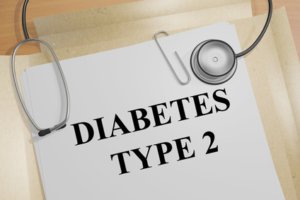 According to an American study, individuals with higher blood levels of vitamin D are far less likely to develop type 2 diabetes and metabolic syndrome, the early stage of the disease, which is characterized by insulin resistance, hypertension, and elevated cholesterol levels. Because it takes many years for type 2 diabetes to develop, it is essential to have sufficiently high vitamin D levels from the early years in life. Both the new American study and earlier research point to the fact that it is not possible to obtain high blood levels of the nutrient without getting plenty of sun during the summer period and taking a high-dosed vitamin D supplement in the winter.
According to an American study, individuals with higher blood levels of vitamin D are far less likely to develop type 2 diabetes and metabolic syndrome, the early stage of the disease, which is characterized by insulin resistance, hypertension, and elevated cholesterol levels. Because it takes many years for type 2 diabetes to develop, it is essential to have sufficiently high vitamin D levels from the early years in life. Both the new American study and earlier research point to the fact that it is not possible to obtain high blood levels of the nutrient without getting plenty of sun during the summer period and taking a high-dosed vitamin D supplement in the winter.







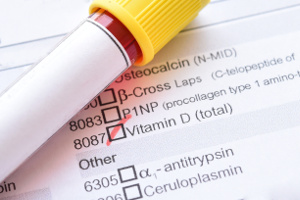 Melanoma can be very dangerous if it is not treated in time, but a study from the University of Leeds in England shows that vitamin D affects melanoma cells and makes them less aggressive. According to the scientists behind the study, this revelation may lead to new therapies. It is a problem, however, that health authorities warn people against sun exposure without informing about alternative ways to optimize vitamin D levels. The sun during the summer period is our main source of vitamin D, so we just have to make sure not to get burned. At our latitudes, it is a good idea to take a vitamin D supplement during the winter period. According to other studies, the nutrient prevents cancer by way of several different mechanisms.
Melanoma can be very dangerous if it is not treated in time, but a study from the University of Leeds in England shows that vitamin D affects melanoma cells and makes them less aggressive. According to the scientists behind the study, this revelation may lead to new therapies. It is a problem, however, that health authorities warn people against sun exposure without informing about alternative ways to optimize vitamin D levels. The sun during the summer period is our main source of vitamin D, so we just have to make sure not to get burned. At our latitudes, it is a good idea to take a vitamin D supplement during the winter period. According to other studies, the nutrient prevents cancer by way of several different mechanisms.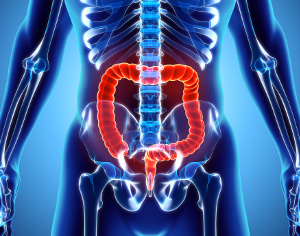 Colorectal cancer is one of the most common cancer forms in Denmark, which is why prevention is so important. According to a new American study that is published in Gastroenterology, increased intake of vitamin D appears to protect against bowel cancer, especially in people younger than 50 years. It even looks as if vitamin D may prevent intestinal polyps that can turn into cancer in some cases. The scientists say that higher intake of vitamin D may be relevant for prevention and may also serve as an inexpensive supplement to screening tests that are merely used for early diagnosis.
Colorectal cancer is one of the most common cancer forms in Denmark, which is why prevention is so important. According to a new American study that is published in Gastroenterology, increased intake of vitamin D appears to protect against bowel cancer, especially in people younger than 50 years. It even looks as if vitamin D may prevent intestinal polyps that can turn into cancer in some cases. The scientists say that higher intake of vitamin D may be relevant for prevention and may also serve as an inexpensive supplement to screening tests that are merely used for early diagnosis.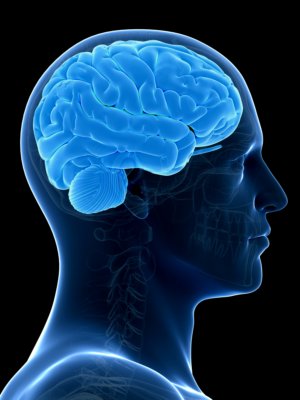 Psychological disorders represent society’s single largest disease burden, and an increasing number of people are affected by it. There can be a variety of causes, and lack of vitamin D appears to be an alarming risk factor. This is because vitamin D is involved in a host of different functions that are relevant for brain neurons, including signaling substances and the brain’s reward system that affects our mood. Vitamin D also helps protect the brain against toxins, atherosclerosis, and inflammation, according to a review article that is published in the science journal Cureus. But there are questions that need to be answered. How much vitamin D do we need? Can we get enough from sun exposure? Is there enough vitamin D in a regular vitamin pill? Why do children, seniors, pregnant women, overweight individuals, and dark-skinned people have an increased need for vitamin D? And which mineral is extremely important for the body’s ability to utilize vitamin D?
Psychological disorders represent society’s single largest disease burden, and an increasing number of people are affected by it. There can be a variety of causes, and lack of vitamin D appears to be an alarming risk factor. This is because vitamin D is involved in a host of different functions that are relevant for brain neurons, including signaling substances and the brain’s reward system that affects our mood. Vitamin D also helps protect the brain against toxins, atherosclerosis, and inflammation, according to a review article that is published in the science journal Cureus. But there are questions that need to be answered. How much vitamin D do we need? Can we get enough from sun exposure? Is there enough vitamin D in a regular vitamin pill? Why do children, seniors, pregnant women, overweight individuals, and dark-skinned people have an increased need for vitamin D? And which mineral is extremely important for the body’s ability to utilize vitamin D? Supplementing with high doses of vitamin D may lower the rate of acute airway infections by up to 40 per cent. This simple trick may have the potential to save millions of lives, as many older people, cancer patients and others people with impaired resistance die of pneumonia.
Supplementing with high doses of vitamin D may lower the rate of acute airway infections by up to 40 per cent. This simple trick may have the potential to save millions of lives, as many older people, cancer patients and others people with impaired resistance die of pneumonia.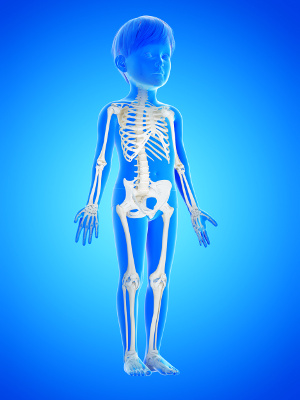
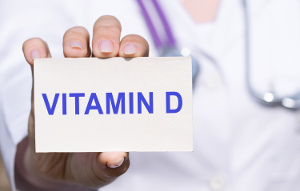 Photodynamic therapy is a kind of light therapy that is used to treat skin cancer, psoriasis, and other skin diseases. According to a review article published in Nutrients, vitamin D supplementation can improve the outcome of the treatment. In fact, vitamin D appears to have several positive effects on skin health. Taken in large doses, the vitamin can even repair skin damage caused by sunburns.
Photodynamic therapy is a kind of light therapy that is used to treat skin cancer, psoriasis, and other skin diseases. According to a review article published in Nutrients, vitamin D supplementation can improve the outcome of the treatment. In fact, vitamin D appears to have several positive effects on skin health. Taken in large doses, the vitamin can even repair skin damage caused by sunburns.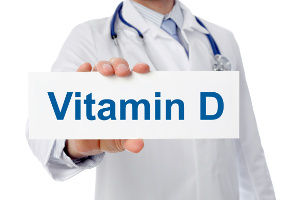 Benign paroxysmal positional vertigo (BPPV) impairs many people’s quality of life and ability to work. The dizzy spells typically occur when they shift position. According to a study from Korea which is published in Neurology, supplementing with vitamin D and calcium may lower the risk of recurring spells of dizziness. It is important to balance your calcium intake with magnesium.
Benign paroxysmal positional vertigo (BPPV) impairs many people’s quality of life and ability to work. The dizzy spells typically occur when they shift position. According to a study from Korea which is published in Neurology, supplementing with vitamin D and calcium may lower the risk of recurring spells of dizziness. It is important to balance your calcium intake with magnesium.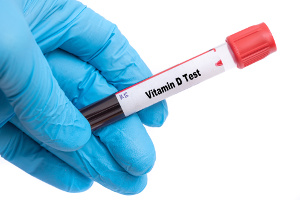 Many critically ill patients lack vitamin D to an extent that can be life-threatening. This also goes for patients hospitalized with COVID-19. A large meta-analysis concludes that supplementation with vitamin D can lower all-cause mortality and reduce the duration of patients’ stay in intensive care. In the meta-analysis, the researchers look at the mechanisms that enable vitamin D to regulate inflammation and oxidative stress, which can lead to organ failure in critically ill patients.
Many critically ill patients lack vitamin D to an extent that can be life-threatening. This also goes for patients hospitalized with COVID-19. A large meta-analysis concludes that supplementation with vitamin D can lower all-cause mortality and reduce the duration of patients’ stay in intensive care. In the meta-analysis, the researchers look at the mechanisms that enable vitamin D to regulate inflammation and oxidative stress, which can lead to organ failure in critically ill patients.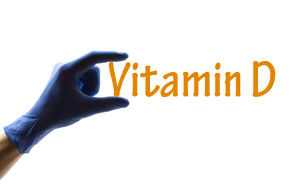 Inflammatory bowel diseases (IBD) and irritable bowel syndrome (IBS) are common chronic bowel diseases. Earlier studies show that supplementation with vitamin D can alleviate local symptoms by strengthening the immune defense and controlling inflammatory processes. In a new review article, scientists have looked closer at how supplements of vitamin D can also improve mental health in patients with inflammatory bowel diseases and irritable bowel problems.
Inflammatory bowel diseases (IBD) and irritable bowel syndrome (IBS) are common chronic bowel diseases. Earlier studies show that supplementation with vitamin D can alleviate local symptoms by strengthening the immune defense and controlling inflammatory processes. In a new review article, scientists have looked closer at how supplements of vitamin D can also improve mental health in patients with inflammatory bowel diseases and irritable bowel problems.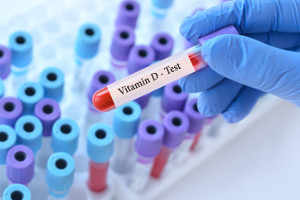 The rate of prediabetes and diabetes is reaching epidemic proportions. Many people even have prediabetes without being aware of it. The condition is characterized by elevated cholesterol and triglyceride levels, but according to a meta-analysis that is published in Frontiers in Nutrition, high-dosed vitamin D supplementation can lower levels of triglycerides in the blood. The meta-analysis supports earlier studies showing that vitamin D is important for the body’s metabolism of fat and carbohydrates. Around half the world’s population lacks this vitamin, and the need for vitamin D is increased in people with prediabetes and diabetes because they have difficulty with utilizing it.
The rate of prediabetes and diabetes is reaching epidemic proportions. Many people even have prediabetes without being aware of it. The condition is characterized by elevated cholesterol and triglyceride levels, but according to a meta-analysis that is published in Frontiers in Nutrition, high-dosed vitamin D supplementation can lower levels of triglycerides in the blood. The meta-analysis supports earlier studies showing that vitamin D is important for the body’s metabolism of fat and carbohydrates. Around half the world’s population lacks this vitamin, and the need for vitamin D is increased in people with prediabetes and diabetes because they have difficulty with utilizing it.
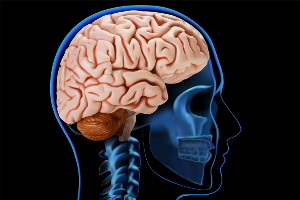 Lack of vitamin D is a global health problem that increases mortality rates. At this point, many studies have shown that having adequate amounts of vitamin D in the blood can lower your risk of cardiovascular disease, which is the leading cause of death. In a new review article that is published in Nutrients, the authors look closer at vitamin D supplementation to see if it can prevent stroke and speed up rehabilitation. It is essential that vitamin D supplements have good bioavailability so they can optimize blood levels of the nutrient.
Lack of vitamin D is a global health problem that increases mortality rates. At this point, many studies have shown that having adequate amounts of vitamin D in the blood can lower your risk of cardiovascular disease, which is the leading cause of death. In a new review article that is published in Nutrients, the authors look closer at vitamin D supplementation to see if it can prevent stroke and speed up rehabilitation. It is essential that vitamin D supplements have good bioavailability so they can optimize blood levels of the nutrient. PMS (premenstrual syndrome) is quite common among women of childbearing age and can easily make their lives miserable for years, causing both physical and mental discomfort several days a month. A possible cause can be lack of vitamin D, and it looks as if high-dosed supplementation with the nutrient can relieve PMS by controlling inflammation markers and influencing the body’s antioxidant capacity. This was shown in an Iranian study that is published in Scientific Reports. It is worth noting that we need magnesium to activate vitamin D in order for the body to be able to use it optimally.
PMS (premenstrual syndrome) is quite common among women of childbearing age and can easily make their lives miserable for years, causing both physical and mental discomfort several days a month. A possible cause can be lack of vitamin D, and it looks as if high-dosed supplementation with the nutrient can relieve PMS by controlling inflammation markers and influencing the body’s antioxidant capacity. This was shown in an Iranian study that is published in Scientific Reports. It is worth noting that we need magnesium to activate vitamin D in order for the body to be able to use it optimally.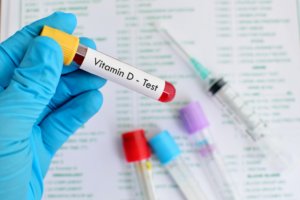 Cancer patients, who take high-dosed vitamin D supplements for at least three years may live longer, according to a study from Michigan State University, USA. It is not enough to treat cancer with surgery, chemotherapy and radiation. You also have to optimize the body’s vitamin D status. It is a problem that vitamin D deficiency is so common because it helps long-term prevention if you have adequate levels of the nutrient in your blood. The question is how much do we need, and is the sun sufficiently powerful to enable us to synthesize vitamin D in our skin during the winter period?
Cancer patients, who take high-dosed vitamin D supplements for at least three years may live longer, according to a study from Michigan State University, USA. It is not enough to treat cancer with surgery, chemotherapy and radiation. You also have to optimize the body’s vitamin D status. It is a problem that vitamin D deficiency is so common because it helps long-term prevention if you have adequate levels of the nutrient in your blood. The question is how much do we need, and is the sun sufficiently powerful to enable us to synthesize vitamin D in our skin during the winter period? There is an increasing amount of science that links lack of vitamin D to autism. In a new study, 109 autistic children were given either a vitamin D supplement or placebo. According to the lead researcher, Dr. Khaled Saad, there was a distinct improvement in autism symptoms such as hyperactivity, social reclusion, and other function impairments in the children who took supplements of vitamin D, but not in the placebo group. The study is published in the Journal of Child Psychology and Psychiatry (2016).
There is an increasing amount of science that links lack of vitamin D to autism. In a new study, 109 autistic children were given either a vitamin D supplement or placebo. According to the lead researcher, Dr. Khaled Saad, there was a distinct improvement in autism symptoms such as hyperactivity, social reclusion, and other function impairments in the children who took supplements of vitamin D, but not in the placebo group. The study is published in the Journal of Child Psychology and Psychiatry (2016).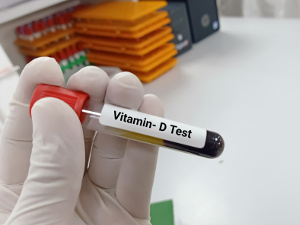 Cancer patients often have overwhelming pain that turns up as their disease progresses. The whole purpose with palliative care is to relieve the pain, and opioids such as morphine are often used for this purpose. However, according to a Swedish study published in the science journal Cancer, more and more terminal cancer patients who are given high-dosed supplements of vitamin D have less need for pain treatment and generally feel less tired. Vitamin D deficiencies are common among cancer patients and may contribute to a shorter life expectancy.
Cancer patients often have overwhelming pain that turns up as their disease progresses. The whole purpose with palliative care is to relieve the pain, and opioids such as morphine are often used for this purpose. However, according to a Swedish study published in the science journal Cancer, more and more terminal cancer patients who are given high-dosed supplements of vitamin D have less need for pain treatment and generally feel less tired. Vitamin D deficiencies are common among cancer patients and may contribute to a shorter life expectancy. In May 2017, new data linking vitamin D and fertility was presented at the European Congress of Endocrinology (ECE) in Lisbon. The new findings contribute to our understanding of vitamin D’s impact on male testosterone levels and of our knowledge about whether vitamin D supplements may actually improve fertility in both sexes. Involuntary infertility, a widespread problem, may be a result of many factors, but if the reason is a vitamin D deficiency, it is easy to treat with increased exposure to sunlight and the use of supplements to keep vitamin D levels optimal all year round.
In May 2017, new data linking vitamin D and fertility was presented at the European Congress of Endocrinology (ECE) in Lisbon. The new findings contribute to our understanding of vitamin D’s impact on male testosterone levels and of our knowledge about whether vitamin D supplements may actually improve fertility in both sexes. Involuntary infertility, a widespread problem, may be a result of many factors, but if the reason is a vitamin D deficiency, it is easy to treat with increased exposure to sunlight and the use of supplements to keep vitamin D levels optimal all year round.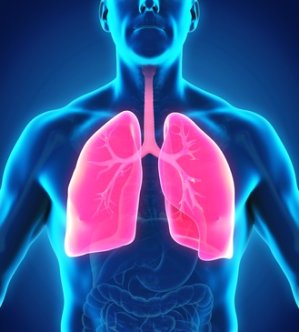 According to a Cochrane review, supplementing asthma medication with vitamin D may halve the risk of having a severe asthma attack and improve quality of life for those who suffer from this condition.
According to a Cochrane review, supplementing asthma medication with vitamin D may halve the risk of having a severe asthma attack and improve quality of life for those who suffer from this condition. Vitamin D supplements prevent colds, influenza, and intercurrent complications. This was seen in a large meta-analysis emphasizing that vitamin D is not only important for bone health but also for the immune system, which may require larger quantities. Because many old people or weakened individuals die of pneumonia, supplementing with vitamin D may potentially save millions of lives.
Vitamin D supplements prevent colds, influenza, and intercurrent complications. This was seen in a large meta-analysis emphasizing that vitamin D is not only important for bone health but also for the immune system, which may require larger quantities. Because many old people or weakened individuals die of pneumonia, supplementing with vitamin D may potentially save millions of lives.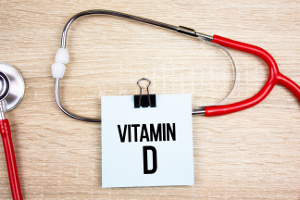 The number of older people is increasing rapidly, which means more and more people suffer from different types of dementia. Vitamin D supplementation may help prevent dementia or delay its progression, according to a population study that is published in Alzheimer’s & Dementia: Diagnosis, Assessment & Disease Monitoring. It is important to have optimal blood levels of the nutrient throughout life, simply because it often takes years for dementia to develop, and because vitamin D has many different functions that are relevant for brain health.
The number of older people is increasing rapidly, which means more and more people suffer from different types of dementia. Vitamin D supplementation may help prevent dementia or delay its progression, according to a population study that is published in Alzheimer’s & Dementia: Diagnosis, Assessment & Disease Monitoring. It is important to have optimal blood levels of the nutrient throughout life, simply because it often takes years for dementia to develop, and because vitamin D has many different functions that are relevant for brain health. Lack of vitamin D is rather common. It increases the risk of infections and a host of serious diseases. German cancer researchers have estimated that if all Germans from 50 years and older took a daily vitamin D supplement it would prevent 30,000 cancer-related deaths annually and gain over 300,000 years of life. In addition to that, it would lead to huge reductions in public healthcare. The health-related and financial benefits of optimizing the population’s vitamin D status fits in nicely with previous research and calculations from Denmark.
Lack of vitamin D is rather common. It increases the risk of infections and a host of serious diseases. German cancer researchers have estimated that if all Germans from 50 years and older took a daily vitamin D supplement it would prevent 30,000 cancer-related deaths annually and gain over 300,000 years of life. In addition to that, it would lead to huge reductions in public healthcare. The health-related and financial benefits of optimizing the population’s vitamin D status fits in nicely with previous research and calculations from Denmark.
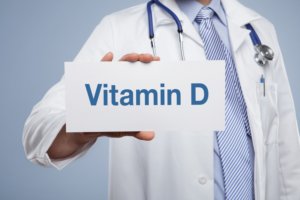 Sclerosis, rheumatoid arthritis, certain gastrointestinal infections, and a host of other diseases are so-called autoimmune diseases that occur as a result of the immune defense overreacting and attacking the body’s own tissues. Scientists from the University of Edinburgh in Scotland have now mapped out exactly how vitamin D regulates the immune system. In fact, vitamin D may have a positive effect on autoimmune diseases such as sclerosis. But at our latitude, this provides that we get enough vitamin D from the sun in the summertime and take vitamin D supplements in the winter period. Besides, it is a problem that being overweight both increases the risk of vitamin D deficiency and sclerosis, while lack of magnesium makes it difficult for the body to activate vitamin D.
Sclerosis, rheumatoid arthritis, certain gastrointestinal infections, and a host of other diseases are so-called autoimmune diseases that occur as a result of the immune defense overreacting and attacking the body’s own tissues. Scientists from the University of Edinburgh in Scotland have now mapped out exactly how vitamin D regulates the immune system. In fact, vitamin D may have a positive effect on autoimmune diseases such as sclerosis. But at our latitude, this provides that we get enough vitamin D from the sun in the summertime and take vitamin D supplements in the winter period. Besides, it is a problem that being overweight both increases the risk of vitamin D deficiency and sclerosis, while lack of magnesium makes it difficult for the body to activate vitamin D.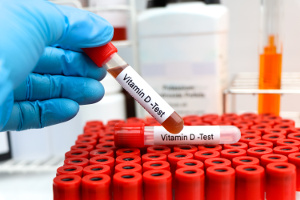 Many of us contract respiratory infections during the winter period. In many cases, the underlying cause is a deficiency of vitamin D, a key nutrient for immune health. Vitamin D also regulates the body’s inflammatory response, thereby preventing it from getting out of hand and becoming complicated or life-threatening. In a new review article, researchers looked at vitamin D’s role in preventing and fighting acute respiratory infections such as COVID-19 and influenza with particular focus on children and youngsters. The scientists point out that many people need to take higher doses of vitamin D to optimize levels of the nutrient in their blood.
Many of us contract respiratory infections during the winter period. In many cases, the underlying cause is a deficiency of vitamin D, a key nutrient for immune health. Vitamin D also regulates the body’s inflammatory response, thereby preventing it from getting out of hand and becoming complicated or life-threatening. In a new review article, researchers looked at vitamin D’s role in preventing and fighting acute respiratory infections such as COVID-19 and influenza with particular focus on children and youngsters. The scientists point out that many people need to take higher doses of vitamin D to optimize levels of the nutrient in their blood. Vitamin D plays a major role in our health. The main focus, however, is on vitamin D’s importance for bones, while many health professionals are totally unaware of the nutrient’s other essential functions. According to a review article published in Nutrients, half the global population has low vitamin D levels in the blood, which increases the risk of cardiovascular disease, hypertension, cancer, type 2 diabetes, Alzheimer’s disease, respiratory infections like COVID-19, and early death. The authors also mention that vitamin D science is often inadequate or misleading because studies focus on supplementation rather than looking at blood levels of 25(OH)D. Consequently, trials are often made with far too small vitamin D doses or with too a short a trial period. In either case, blood levels of vitamin D fail to reach their optimum. What is more, levels of 25(OH)D in the blood should ideally be above 75 nmol/L in order to protect against cardiovascular disease, cancer, and early death. Because this threshold level is higher than the official threshold levels, the scientists recommend high-dosed vitamin D levels as a way to reach an optimal nutrient status.
Vitamin D plays a major role in our health. The main focus, however, is on vitamin D’s importance for bones, while many health professionals are totally unaware of the nutrient’s other essential functions. According to a review article published in Nutrients, half the global population has low vitamin D levels in the blood, which increases the risk of cardiovascular disease, hypertension, cancer, type 2 diabetes, Alzheimer’s disease, respiratory infections like COVID-19, and early death. The authors also mention that vitamin D science is often inadequate or misleading because studies focus on supplementation rather than looking at blood levels of 25(OH)D. Consequently, trials are often made with far too small vitamin D doses or with too a short a trial period. In either case, blood levels of vitamin D fail to reach their optimum. What is more, levels of 25(OH)D in the blood should ideally be above 75 nmol/L in order to protect against cardiovascular disease, cancer, and early death. Because this threshold level is higher than the official threshold levels, the scientists recommend high-dosed vitamin D levels as a way to reach an optimal nutrient status.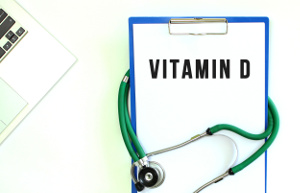
 Vitamin D is involved in the development of the brain structure and in brain functions. According to a review article that is published in Nutrients, vitamin D is of particularly great importance to the mental health of children and teenagers due to its long-term effect. This subject is highly topical as it is known that the widespread lack of vitamin D among children increases their risk of anxiety, depression, aggressive behavior, and other mental problems. It is vital for children and teenagers to get plenty of sun and supplements if necessary so they are sure to meet the new guidelines for vitamin D.
Vitamin D is involved in the development of the brain structure and in brain functions. According to a review article that is published in Nutrients, vitamin D is of particularly great importance to the mental health of children and teenagers due to its long-term effect. This subject is highly topical as it is known that the widespread lack of vitamin D among children increases their risk of anxiety, depression, aggressive behavior, and other mental problems. It is vital for children and teenagers to get plenty of sun and supplements if necessary so they are sure to meet the new guidelines for vitamin D.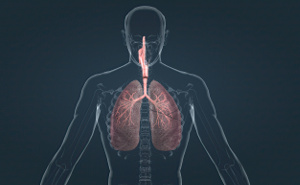 COPD, a lung disease that is primarily a result of smoking, is one of the leading causes of death. Asthma, however, may also become life-threatening if it is left untreated. According to a meta-analysis published in Journal of Global Health, vitamin D supplementation may improve lung function in both diseases. The authors look at how vitamin D strengthens the immune defense and controls inflammation.
COPD, a lung disease that is primarily a result of smoking, is one of the leading causes of death. Asthma, however, may also become life-threatening if it is left untreated. According to a meta-analysis published in Journal of Global Health, vitamin D supplementation may improve lung function in both diseases. The authors look at how vitamin D strengthens the immune defense and controls inflammation.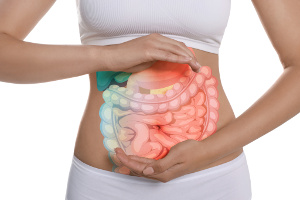 Multiple studies have shown that vitamin D plays a key role in gut health by supporting the protective mucosa, the massive gut flora, the intestinal immune defense, and the regulation of inflammatory processes. According to a new review article published in Nutrients, lack of vitamin D, which is quite common, may therefore result in an increased risk of irritable bowel syndrome (IBS) and inflammatory bowel disease (IBD), which more and more people are affected by.
Multiple studies have shown that vitamin D plays a key role in gut health by supporting the protective mucosa, the massive gut flora, the intestinal immune defense, and the regulation of inflammatory processes. According to a new review article published in Nutrients, lack of vitamin D, which is quite common, may therefore result in an increased risk of irritable bowel syndrome (IBS) and inflammatory bowel disease (IBD), which more and more people are affected by.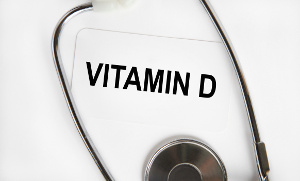
 Vitamin D2 occurs naturally in foods from the plant kingdom while vitamin D3 comes from animal sources. It is also vitamin D3 that we synthesize in our skin in response to sun exposure. Scientists from the Universities of Surrey and Brighton in Great Britain have now discovered that the two types of vitamin D have entirely different effects. They therefore sow doubts about vitamin D2’s role in human health, whereas vitamin D3 is known for its vital role in helping the immune system in its fight against infections such as COVID-19. Most cells in the body have vitamin D receptors, and the nutrient is also important for cancer prevention, the nervous system, our mood, and a number of other functions. Vitamin D3 from food, supplements, or sunshine must be activated in the body before it can be utilized.
Vitamin D2 occurs naturally in foods from the plant kingdom while vitamin D3 comes from animal sources. It is also vitamin D3 that we synthesize in our skin in response to sun exposure. Scientists from the Universities of Surrey and Brighton in Great Britain have now discovered that the two types of vitamin D have entirely different effects. They therefore sow doubts about vitamin D2’s role in human health, whereas vitamin D3 is known for its vital role in helping the immune system in its fight against infections such as COVID-19. Most cells in the body have vitamin D receptors, and the nutrient is also important for cancer prevention, the nervous system, our mood, and a number of other functions. Vitamin D3 from food, supplements, or sunshine must be activated in the body before it can be utilized.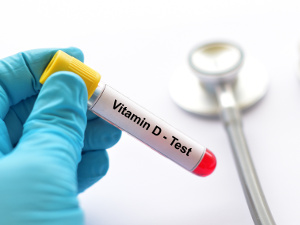 Lack of vitamin D is linked to an increased risk of virus infections, respiratory diseases, cardiovascular diseases, dementia, cancer, and osteoporosis. However, the official recommendations for vitamin D intake are way too low, according to two new studies that were presented at the American Heart Association’s Scientific Sessions in Philadelphia in 2023. In addition, a German study of athletes has shown that it is better to take individually tailored vitamin D supplements to optimize blood levels of the nutrient instead of using a “one-size-fits-all” solution.
Lack of vitamin D is linked to an increased risk of virus infections, respiratory diseases, cardiovascular diseases, dementia, cancer, and osteoporosis. However, the official recommendations for vitamin D intake are way too low, according to two new studies that were presented at the American Heart Association’s Scientific Sessions in Philadelphia in 2023. In addition, a German study of athletes has shown that it is better to take individually tailored vitamin D supplements to optimize blood levels of the nutrient instead of using a “one-size-fits-all” solution.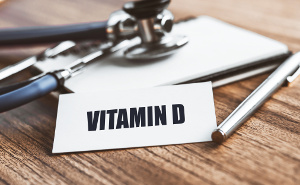
 Around one billion people worldwide are believed to lack vitamin D. This gives cause for concern when it comes to public health, also with regard to pregnant women and their children. Several studies link vitamin D deficiency to a number of different pregnancy-related complications such as preeclampsia, increased risk of preterm delivery, and the need for a Caesarean section. There is also a risk of low birth weight, weak bones, and later development of bronchitis, asthma, type 1 diabetes, sclerosis, and autism, according to a review article published in Nutrients. The authors believe it is necessary to give supplements to help correct vitamin D deficiencies in the expecting mothers and even in the children after birth to prevent many of the diseases and complications linked to low vitamin D status.
Around one billion people worldwide are believed to lack vitamin D. This gives cause for concern when it comes to public health, also with regard to pregnant women and their children. Several studies link vitamin D deficiency to a number of different pregnancy-related complications such as preeclampsia, increased risk of preterm delivery, and the need for a Caesarean section. There is also a risk of low birth weight, weak bones, and later development of bronchitis, asthma, type 1 diabetes, sclerosis, and autism, according to a review article published in Nutrients. The authors believe it is necessary to give supplements to help correct vitamin D deficiencies in the expecting mothers and even in the children after birth to prevent many of the diseases and complications linked to low vitamin D status.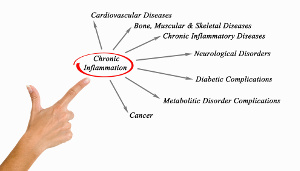 According to WHO, chronic inflammation is the leading cause of death worldwide. Although it is not something that can be felt as such, chronic inflammation sets the stage for a host of different diseases. In a new review article that is published in StatPearls, the authors look closer at why chronic inflammation is so dangerous and how a healthier lifestyle with vitamin D, selenium, magnesium, zinc, and fish oil can help fight the inflammation and prevent the many different diseases and early death that follow in its wake.
According to WHO, chronic inflammation is the leading cause of death worldwide. Although it is not something that can be felt as such, chronic inflammation sets the stage for a host of different diseases. In a new review article that is published in StatPearls, the authors look closer at why chronic inflammation is so dangerous and how a healthier lifestyle with vitamin D, selenium, magnesium, zinc, and fish oil can help fight the inflammation and prevent the many different diseases and early death that follow in its wake. The summer sun is our primary source of vitamin D, and previous population studies have suggested that vitamin D may help prevent breast cancer from developing. Danish scientists have looked closer at this relation and found that women from 50 years of age and older who spend a lot of time outdoors – especially between 10 am and 3 pm – have a lower risk of breast cancer. This is important knowledge because it takes years for breast cancer to develop. Vitamin D appears to have a number of different anti-cancer mechanisms, which is why it is vital for us humans to get plenty of the nutrient throughout life.
The summer sun is our primary source of vitamin D, and previous population studies have suggested that vitamin D may help prevent breast cancer from developing. Danish scientists have looked closer at this relation and found that women from 50 years of age and older who spend a lot of time outdoors – especially between 10 am and 3 pm – have a lower risk of breast cancer. This is important knowledge because it takes years for breast cancer to develop. Vitamin D appears to have a number of different anti-cancer mechanisms, which is why it is vital for us humans to get plenty of the nutrient throughout life. Decades of intensive farming have depleted the soil. As a result, crops lack up to 40% of their essential nutrients, according to a previously published study from University of Texas and a more recent one from Switzerland. Even if you stick to the official dietary guidelines, you may have difficulty with getting enough calcium, selenium, zinc, iron, vitamin B2, vitamin C, and other essential micronutrients that are required for good health.
Decades of intensive farming have depleted the soil. As a result, crops lack up to 40% of their essential nutrients, according to a previously published study from University of Texas and a more recent one from Switzerland. Even if you stick to the official dietary guidelines, you may have difficulty with getting enough calcium, selenium, zinc, iron, vitamin B2, vitamin C, and other essential micronutrients that are required for good health.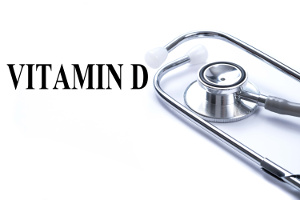 Vitamin D is important for a strong immune defense, healthy bones and cardiovascular system, cancer prevention, and for the support of many other essential body functions. However, it is not enough to follow the official guidelines for intake levels or to rely on blood tests. According to Carsten Carlberg, a professor at the University of Eastern Finland (UEF), the explanation lies in the fact that we humans respond widely different to vitamin D, so the optimal vitamin D dose varies from one individual to another. Based on years of research, Carsten Carlberg therefore advises all adults living at northern latitudes to take 100 micrograms of vitamin D daily throughout the winter period, just to be safe. Earlier studies indicate that the official recommendations for vitamin D are based on a miscalculation that has had fatal consequences for public health.
Vitamin D is important for a strong immune defense, healthy bones and cardiovascular system, cancer prevention, and for the support of many other essential body functions. However, it is not enough to follow the official guidelines for intake levels or to rely on blood tests. According to Carsten Carlberg, a professor at the University of Eastern Finland (UEF), the explanation lies in the fact that we humans respond widely different to vitamin D, so the optimal vitamin D dose varies from one individual to another. Based on years of research, Carsten Carlberg therefore advises all adults living at northern latitudes to take 100 micrograms of vitamin D daily throughout the winter period, just to be safe. Earlier studies indicate that the official recommendations for vitamin D are based on a miscalculation that has had fatal consequences for public health.
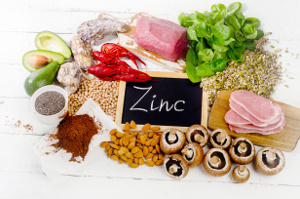 Zinc is of vital importance to the immune defense, our mental balance, fertility, skin, hair, sense of taste, and numerous other functions. According to a new study that is published in Current Research in Physiology, zinc interacts closely with vitamin D and is important for our cells’ ability to absorb vitamin D. Conversely, vitamin D supports the uptake of zinc in the intestines and supports various zinc-dependent cell functions. According to the new study, lack of one or both nutrients can result in a host of different problems such as infections, poor wound healing, muscle diseases, cardiovascular disease, neurological disorders, osteoporosis, cancer, and many other diseases. This is a problem because zinc and vitamin D deficiencies are rather common – mainly because of unhealthy eating habits, lack of sunlight, ageing, overweight, and the use of certain types of medicine.
Zinc is of vital importance to the immune defense, our mental balance, fertility, skin, hair, sense of taste, and numerous other functions. According to a new study that is published in Current Research in Physiology, zinc interacts closely with vitamin D and is important for our cells’ ability to absorb vitamin D. Conversely, vitamin D supports the uptake of zinc in the intestines and supports various zinc-dependent cell functions. According to the new study, lack of one or both nutrients can result in a host of different problems such as infections, poor wound healing, muscle diseases, cardiovascular disease, neurological disorders, osteoporosis, cancer, and many other diseases. This is a problem because zinc and vitamin D deficiencies are rather common – mainly because of unhealthy eating habits, lack of sunlight, ageing, overweight, and the use of certain types of medicine. "After about one week of taking the Q10 supplement I could feel a huge difference," says 23-year old Alan Piccini, who has been suffering from extreme fatigue and muscle aches ever since he was a child.
"After about one week of taking the Q10 supplement I could feel a huge difference," says 23-year old Alan Piccini, who has been suffering from extreme fatigue and muscle aches ever since he was a child. “Taking capsules with co-enzyme Q10 has freed me of the severe side effects of my cholesterol lowering medicine,” Mrs Franken explains.
“Taking capsules with co-enzyme Q10 has freed me of the severe side effects of my cholesterol lowering medicine,” Mrs Franken explains.